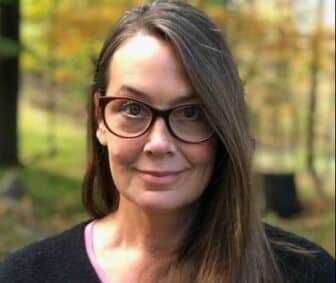On the pathway towards independence, children fluctuate between feeling big and feeling little. One day they pretend to be powerful superheroes saving the world, and the next day they become helpless kittens curled up on their teacher’s lap. It is exciting to grow up, but it’s also perplexing and a little bit scary.
Children express their ambivalence by pulling us close, and then pushing us away. We’ve all witnessed the determination of a toddler who proclaims, “I do it by myself,” and it is easy to assume that when this autonomy is expressed so boldly, that the child is on their way to self-sufficiency. But independence is a tricky concept, and in the next growth spurt, the child becomes clingy and fearful, and we wonder – is the child regressing? Why has it become a power struggle for them to dress themselves? Why do they still need my care?
When I see this mercurial behavior in children, acting both self-reliant and needy, I think it eloquently symbolizes the universal push and pull all humans experience – the dance between our independence and our interdependence.
Often when children most need our care, it is not because they are physically vulnerable, but because they are asking the bigger psychological and philosophical questions about human life – what does it mean to grow and change? Am I alone? Who am I in response to another? How much power do I really have? Who loves me? How are we connected? What is the relational nature of life?
Our society and our educational systems place such a high value on independence, that sometimes we forget to value care. When children require our care, it is associated with neediness which is coupled with weakness, instead of the recognition that care is a beautiful and vital part of our humanness.
The notion of rugged individualism is really a myth. Even if we think we’ve reached the pinnacle, the adult state of independence, we must still acknowledge that our survival and success are always reliant upon someone else; the farmer who grows our food, the grocery store where we shop, the transportation system, and the care infrastructure that allows us to work and live, to name a few.
We are all needy! There has always been a network of care that supports us, and for many years, most everyone free rode off women who cared for children and elders and made it possible for men to work and achieve.
The paradox of identity development is that we can’t do it alone. It is only through the response of the other that we find ourselves.
Care should not be held in contrast to independence and strength. It is time to push against the notion that care is a soft skill. As Nel Noddings says, “Care is the strong backbone of society.” To be human is to follow our natural urge toward individualization and sovereignty while recognizing the seed of our personal power grows from community, cooperation, and care.
Imagine how our educational systems could change if we integrated care ethics into our pedagogy and practice. What if we explicitly analyzed the same questions young children ask at the beginning of life in their push and pull towards independence – the big questions about the relational nature of being human? What if caring was taken seriously as an educational goal and objective; caring for one another, for our children, our elders, our community, and our planet?
Care looks differently at each stage of life, but care is what builds the foundation for self-worth, perspective taking, and empathy. These are the vital building blocks of a strong society. Care offers all the conditions for progressive education and self-actualization. Care is not subordinate to education, care is education.
Carol Garboden Murray, Author of Illuminating Care, The Pedagogy and Practice of Care in Early Childhood Communities, Exchange Press, 2021.
Guest Contributor
Carol GarbOden Murray, M.Ed., has many years of experience in early care and education, working as an early interventionist, and as a baby, toddler, preschool, and kindergarten educator, as well as a director of children’s programs. She is currently the Executive Director of Wimpfheimer Laboratory Nursery School at Vassar College in Poughkeepsie NY. She is a writer of professional articles and books and has most recently published Illuminating Care: The Pedagogy and Practice of Care in Early Childhood Communities with Exchange Press, 2021.

Check out our monthly blog and bi-monthly podcast to read more about DEY’s thoughts on early childhood and early childhood education.
